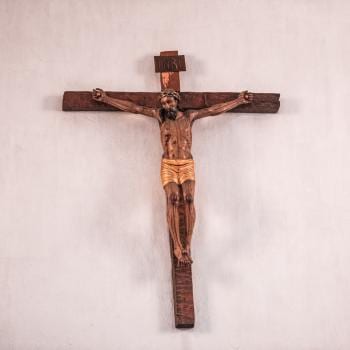Having made it out of the weeds of the Pentateuch, through the shock and horror of Joshua and Judges, I am now wading around in the mire of First Samuel, spliced with psalms as David writes them. I never get through to the middle of First Samuel without being troubled again and again and again about the difference between David and Saul. Saul just doesn't get the point of God. It's like he's at a football game, or something, smiling and looking at the field, maybe even cheering, but when he stands up at the end he has no knowledge of what just happened. He doesn't get it. He's like so many, both in and out of the church, who, at first, don't dislike it, they just don't get it at all. They have no idea why everyone is doing what they're doing, and the more you explain it to them, the more confused they become. Case in point, when Saul doesn't kill Agag and takes all the best sheep alive and then Samuel comes and says “!?!” And Saul says “what? I did it for God,” blatantly lying, it seems like he doesn't get why it's not big deal to lie. And when Samuel says, “God prefers obedience to blood, you fool” (this is all my own scholarly paraphrase) Saul doesn't say anything except, “whatever you do, don't make me look bad”. I always imagine him standing around in confusion which then turns to anger. As an outside observer, reading the text, you watch the train wreck setting itself into place and bite your fingers and think, “what's not to get?”
Especially since David does get it. He gets it on every level, more than almost everyone around him. He gets it more than his brothers, more than Saul, more than the whole army of Israel. He is in the game. He knows why everything is happening. He is the anti Saul. Most striking to me, though, is his obedience and devotion to Saul, his willingness to endure a dangerous situation long past the time when most people would have enough. Plus there's such a striking difference between how he's described in First Samuel and the powerful emotion expressed in the Psalms. In a culture where we are inclined to say whatever it is we feel the moment we feel it to the person whose fault it is, and then to run away, David is so restrained. He is the measure of prudent wisdom and obedience. And then you read the Psalm and discover the depth of his anxiety and sorrow all directed to God, the very person we almost always try to avoid when we have that kind of trauma and emotion going on. He understands this order from the first moment and then subsequently while living in the house of Saul and then fleeing into the caves of the wilderness.
And that's what I have to say about that. I have to go make pancakes.









